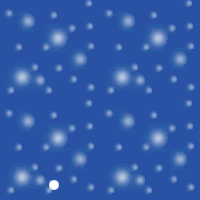|

Holidays/Trips
TRAVEL -HISTORY
Paintings
Paintings2
KK Treks
William KK Treks
William Treks
Israel Tours
China Tours
China Li Jiang
China Ji An
Taiwan Tours
Hongkong Tours
Sg Tours
Asia Tours
Japan Tours
Indo Toba Tours
Bintan Tours
Jakarta
Bali
Lombok
Java bromo
Malaysia Tours
Pontian Kukup
Malaysia Tours
Legoland
Thailand
BKK Golf tour
Aust-NZ Tours
US Tours
Europe Tours
Golfing
Diving
Star Cruise
Speak it
Korea Tour
Korea-Jeju
Korean history
Indo Malang
China-Mongolia
Balkans
Vietnam-HCMC
Vietnam-HANOI
Batam Tours
Tioman Diving
Balkans
Eastern Europe
TURKEY
CHINA
Japan Hokkaido
NORWAY
Paintings
TRAVEL -HISTORY
Airlines
| | Thailand -Dive
Phuket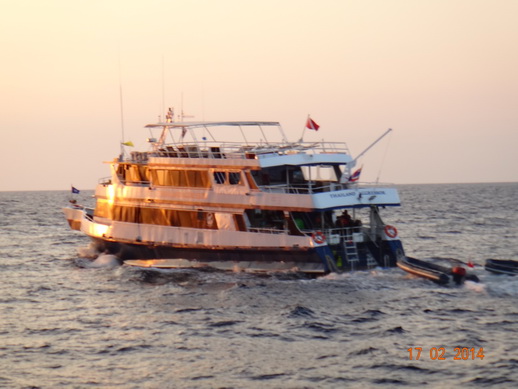

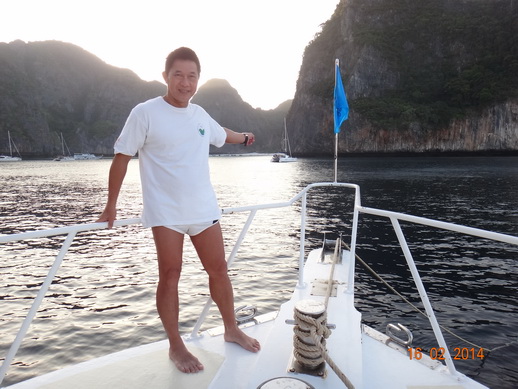
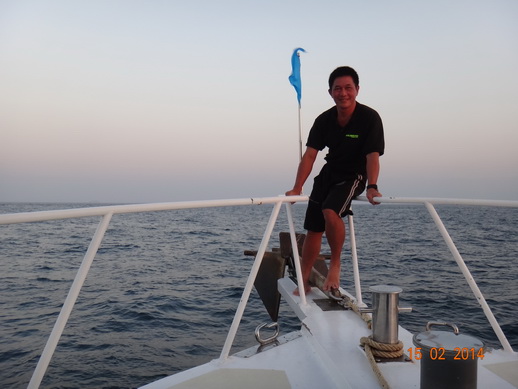
|
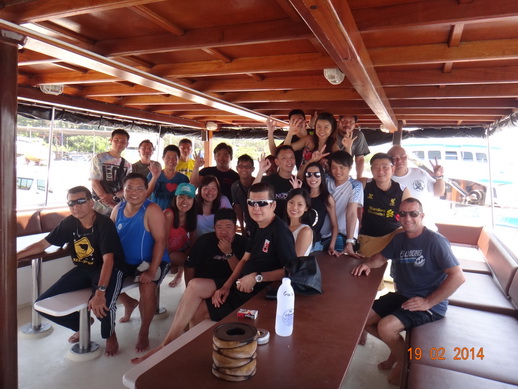 Around the world Around the world |
PHUKET SURROUNDING ISLAND MAP
|
The Similan Islands
Anemone Reef
Koh Tachai
Shark Point
Racha Islands |
Richelieu Rock
King Cruiser Wreck
Koh Bon
Koh Phi Phi
Koh Doc Mai
|
|

The Similan Islands are by far the most
spectacular group of dive sites that Thailand
has to offer and are on par with some of the
best diving destinations worldwide.
- 9 Granite Islands
- Granite Boulders, Swimthroughs,
Overhangs
- Bat Fish, Jacks, Rays, Leopard Sharks,
Tropicals
- Mild to Strong Currents
- 20 to 40 Meters Visibility
- Supervised Beginners to Advanced Divers
Located about one hundred kilometres
northwest of Phuket, the Similans consist of
nine granite islands covered in lush, tropical,
jungle foliage, surrounded by sparkling clear
blue oceans. The beaches are made up of the
finest white powdery sand and literally melt
into the warm tropical waters.
The underwater scenery features beautiful
hard and soft coral gardens. As well you will
find huge granite boulders and dramatic rock
formations including: holes, overhangs,
swimthroughs and canyons. Drift diving is
possible here as divers use the current to
propel them along the vibrantly rich reefs
teeming with unusual and interesting marine
life.
|

Some 50 nautical miles North of the Similan
Islands lies one of the best known dive sites in
Asia. Just breaking the surface at low tide,
Richelieu Rock is probably your best chance to
have the whale shark experience.
- Pinnacles & Islands
- Hard & Soft Corals
- Whale Sharks, Manta Rays, Other
Pelagic’s
- Moderate to Strong Currents
- 10 to 30 Meters Visibility
- Advanced Divers
Some years ago, this site was regarded as a
“whale shark magnet”, and while this is somewhat
of an exaggeration, they still visit regularly.
Other large pelagics such as eagle and manta
rays are common visitors.
The site is huge and most live-aboards will
schedule more than one dive here. The sheer
variety of life is amazing. Huge schools of
trevallies and barracudas cruise the currents,
and many tiny critters such as frogfish, ghost
pipefish and seahorses are hiding in cracks and
crevices.
Richelieu Rock is one of the finest sites in
Thailand.
|

Hin Jom ( Submerged Rock, as it translates )
lies just below the waters surface, about 600
meters to the north of Shark Point. As the Thai
name makes it clear, no part of the pinnacle is
exposed, and under water the pinnacle drops off
more dramatically to a depth of between 20-27
meters until reaching a bottom of sand and
oyster shells.
Although not as colorful as Shark Point, the
marine life here is excellent, and our friends
the Leopard sharks, are often seen free-swimming
at the top of the pinnacle in 6 meters of water.
- Limestone Pinnacle
- Gardens of Hard & Soft Corals
- Tropicals, clownfish, lionfish
- Moderate to Strong Currents
- 10 to 20 Meters Visibility
- All Levels of Divers

The english name for this dive site is
derived from the profusion of Sea Anemone’s that
cling to the edges providing a magnificent back
drop of colour from the Sammler clown fish that
make this their home. This site also acts as a
haven to snappers and groupers and attracts
larger game fish like tuna and jack, sometimes
even larger pelagics can be seen passing by.
Location of both sites just south of Ao
Phangnga and all of it’s fresh water rivers,
means visibility averages around 10 meters,
sometimes less during Phukets rainy season.
Although conditions such as this are not what
divers dream of when they think of the “perfect
dive,” the amount of marine life more than makes
up for it. On days when the water becomes gin
clear, diving here feels like taking a breath of
fresh air.
|

The King Cruiser joined Phukets available dive
sites in May 1997. Originally used as a ferry
for transportation between Phuket and Phi Phi
Islands.
After a miscalculation, the King Cruiser
struck Anemone Reef which resulted in a large
tear in her hull, slowly but surely she began to
sink and finally came to rest approximately 1
mile to the east of Shark Point.
- Car Ferry Wreck
- Artificial Reef
- Barracuda, Jacks, Tuna, Fusiliers
- Mild to Strong Currents
- 10 to 20 Meters Visibility
- Supervised Beginners to Advanced Divers

Fortunately local authorities where quick to
respond to her impending doom and all persons on
board where rescued without any incidents,
however it has provided us with a fascinating
wreck dive. Over the years the marine life has
slowly but surely made this new location their
home, with large schools of big mouth mackerels
cruising the outside, you can also find schools
of five line snappers, yellow tail barracuda,
fusiliers and seasonally big eye trevally.
With a loading deck that extends her length
and width, the King Cruiser allows for a
fascinating swim through her entire length, in
the loading deck you can find banner fish,
scorpion fish, puffers, and varieties of angel
fish.
With a length of 82 meters and a width of 25
meters, the King Cruiser sits upright reaching a
depth of 32 meters at the stern to 12 meters at
the wheelhouse, making for an easy and enjoyable
wreck dive.
|
|

The island of Koh Tachai lies about 20 nautical
miles South of Richelieu Rock and can be another
great spot for Manta Rays. The dive site is a
submerged sea mount with depths from 14-35m, and
currents can be quite strong.
- Pinnacles & Islands
- Hard & Soft Corals
- Whale Sharks, Manta Rays, Other
Pelagic’s
- Moderate to Strong Currents
- 10 to 30 Meters Visibility
- Advanced Divers
The top of the reef is a beautiful mixture of
hard corals, while deeper regions consist of
scattered boulders and sea fans. Leopard sharks
are commonly found resting on the bottom, while
schools of barracuda and batfish cruise around
the reef.
|

Koh Bon is only a short cruise North of the
Similan Islands and is without doubt the best
site for Manta Rays. The dive site follows a
ridge, covered in pastel shaded soft corals,
which drops to depths of 35-40m.
- Pinnacles & Islands
- Hard & Soft Corals
- Whale Sharks, Manta Rays, Other
Pelagic’s
- Moderate to Strong Currents
- 10 to 30 Meters Visibility
- Advanced Divers
Mantas are often spotted over the ridge or in
the deep water to the South. Leopard sharks are
also common in the deeper water and this is a
good location to find the elusive purple fire
goby.
|
| |
|
|

Hin Musang ( Shark Rock, as it translates ),
rises out of the water from the surrounding
depths of 18-20 meters. Considering the small
extent of the rock above water, the actual size
of the reef underwater is a big surprise to most
divers. Beginning from the relatively steep main
rock pinnacle, the reef flattens out to the
south rising two more times to just below the
surface at the other two pinnacle that make up
the reefs structure.
- Limestone Pinnacle
- Gardens of Hard & Soft Corals
- Tropicals, clownfish, Leopard Sharks
- Moderate to Strong Currents
- 10 to 20 Meters Visibility
- All Levels of Divers

The second pinnacle, depending on the
currents is an excellent place to start the
dive. Like many places in Thailand, Shark
Point’s most colorful feature is the profusion
of the purple and pink soft corals that cling to
the rock. The currents sweeping over the
pinnacle’s provide food a-plenty for the
hundreds of different species of hard corals and
limitless tropical fish species. The name of the
site comes from the common Leopard (Zebra) Shark
(Stegastoma Varium), a docile creature that can
be found lying in the sandy bottom surrounding
the pinnacles. These completely reachable,
trusting sharks grow to a length of a little
over 2 meters, and most divers think that they
are one of the "cutest" sharks in the ocean.
Divers that are not accustomed to seeing
sharks are genuinely surprised at how big and
approachable they are. Because they are
nocturnal feeders, they are very approachable
during the day, especially for u/w photos. The
sharks aren’t the only attraction here though,
Shark Point is one of the richest and most vivid
dive spot around, with it’s stunning soft
corals, fan corals and anemones.
|

In recent years Phi Phi Island has gained a
reputation as a spectacular tourist destination,
one of the ten most beautiful islands in the
world. But most people still don’t realize that
Phi Phi is equally beautiful underwater.Phi Phi
Island and the surrounding Phang-Nga Bay are
spectacular limestone rocks created thousands of
years ago. Many rise dramatically upward with
sheer sides and have numerous caves where
fearless men on bamboo scaffolding climb up to
gather swallows nests (nok nang ann) for bird’s
nest soup.
- Limestone Islands
- Hard & Soft Corals, Seafans
- Tropicals | Octopus | Leopard Sharks
- Moderate Currents
- 10 to 20 Meters Visibility
- All Levels of Diver, Good for Beginners

To the north, in Phang Nga Bay, is one of the
worlds largest mangrove tracts, and it is in
this dark and muddy sanctuary that an surprising
amount of colorful reef fish are born and
reared. In fact, without the mangrove providing
shelter and food to so many marine species, the
spectacular underwater landscape you are about
to see on your first dive wouldn’t exist.

But enough marine biology for now, it’s time
to get wet! The dive sites vary enormously,
ranging from sheer walls with a different
creature in every nook and cranny, to craggy
rock outcroppings surrounded by a smooth sandy
bottom. Because of the abundance of nutrients in
the water, these sites are rich in filter
feeding mollusks such as clams, giant oysters
and scallops. Golden gorgonian fans wave in the
currents, while crinoids, starfish and anemones
cling to every available surface.
This is the perfect place to get out your
macro lens and try and find a rare pink and
white nudibranchs. If you’re lucky, you may spot
something at the very top of the chain: "shallam
wan" (whaleshark!). The largest fish in the sea,
they actually feed on plankton. No need to
worry, just take it easy and enjoy a truly
spectacular sight.
|
|

Due South of Phuket lie two classic tropical
islands, Koh Racha Yai ( Big Racha ) and Koh
Racha Noi ( Little Racha ). Both islands feature
fringing hard coral reefs with an abundance of
fish life, including octopus, cuttle fish, and
moray eels. You can always find territorial
triggerfish and large schools of blue line and
yellow tail snapper. Both Islands are especially
good for non-divers, plenty of shallow bays with
big coral heads – ideal snorkeling territory.
- Granite Island
- Gardens of Hard and some Soft Corals
- Tropicals, Turtles, Stingrays, Moray
Eels
- Moderate Currents
- 15 to 25 Meters Visibility
- All Levels of Diver, Good for Beginners

Racha Yai’s best diving is off its east coast
which makes it especially attractive during
Phukets off season in the summer. Although
visibility varies, it is normally around 15
meters all year and during the high season it
reaches 25 meters or more.
A typical dive is a gentle drift along the
sloping rocky face that is sprinkled with hard
coral forests of many, many varieties.
Especially prominent are stag horn corals of
blue and tan.

Many times there are large schools of
barracuda hovering just outside the reef, while
on the reef itself you’ll see octopus and
cuttlefish, in addition to the many other
tropical marine life that is in abundance
throughout this location.
There is also a wooden shipwreck sitting on a
sandy bottom at a depth of 24 meters on the
northeastern coast of the island, another
enjoyable dive.

Not much grows on the wreck as yet, but it
attracts large amounts of reef fish, and Bat
fish in large schools are common for the u/w
photographer. The diving here is generally drift
diving so it allows a diver relax full viewing
of all the splendors that these sites have to
offer.
|

Koh Doc Mai is a limestone island that rises
vertically from the seabed.
Some say it looks like a muffin with the
jungle clad top flowing out over the sheer
cliffs.
- Limestone Islands
- Garden of Hard & Soft Corals
- Tropicals, Moray Eels, Octopus, Sharks
- Moderate to Strong Currents
- 10 to 15 Meters Visibility
- All Levels of Diver

Although the visibility at this site is
generally not as good as others, this dive is
noted for the variety of reef fish and as such
you might be lucky enough to encounter Leopard
Sharks, Moray Eels, Octopus and Turtles. The
east-site of the island consists of a vibrant
garden of yellow tube corals as well as two
small caverns.
Koh Doc Mai is located on the way to Shark
Point and offers an interesting alternative to
the pinnacle dives as it is one of the best wall
dives in the area.
|
|
|
| |
|
| |
|
|
The Similan Islands (Thai: หมู่เกาะสิมิลัน, Thai
pronunciation: [mùː kɔ̀ʔ si.mi.lan], Malay: Pulau
Sembilan سمبيلن ڤولاو) is a group of islands in the
Andaman Sea off the coast of, and part of, Phang Nga
Province, southern Thailand. It is a national park
which was established in 1982.
Similan Islands National Park was established
after a one-year exploration by the forestry
department. The park is an archipelago consisting of
nine islands named Ko Bon, Ko Bayu, Ko Similan, Ko
Payu, Ko Miang (two adjoining islands), Ko Payan, Ko
Payang, and Ko Huyong. Recently, the park was
expanded to include two remote islands named Ko Bon
and Ko Tachai. The Similans are situated 70
kilometres from Phang Nga town. "Similan" is a Yawi
word which means "nine".
The Fishermen Dive Team dives with the liveaboard
vessel MV Andaman Tritan during the
Similan diving season, October to March. Don't miss
out on this spectacular chance to experience a time
of great fun and diving with us!
|
| Itinerary
Fisherman scuba |
| Day 0 |
No dives |
Pickup between (1600HRS - 2000HRS)
Transfer to Thap Lamu Pier to MV Andaman
Tritan for welcome and dinner on board
Sail overnight to Similan Islands
(Sailing time between 4 - 5 hours)
|
| Day 1 |
3 day dives
+
1 night dive |
Dive sites
(Anita's Reef, Elephant Head Rock, West
of Eden, Snapper Alley, Sail Rock) |
| Day 2 |
4 day dives |
Dive sites
(Christmas Point, North Point, Koh Bon -
North Reef, Ridge, Pinnacle, Koh Tachai) |
| Day 3 |
4 day dives |
Dive sites
(Koh Tachai, Richelieu Rock) |
| Day 4 |
2 day dives |
Dive site
(Boonsung Wreck, MV Sea Chart Wreck,
Premchai Wreck)
Return to Thap Lamu Pier by 1330HRS.
Transfer to hotel by 1700PM / airport by
1830HRS. |
Dive sites may be subject to change depending
on weather and sea conditions.
Check out our
dive calendar or call our hotline at
+65 6747 3456 for more information.
Phuket guide
Maps Phuket guide
phuket beaches
http://www.phuket.com/diving/daytrips.htm
http://jamie-monk.blogspot.com/2006/08/scuba-diving-in-phuket.html
http://www.sunrise-divers.com/googlemap.php
| Phuket
is the biggest island in
Thailand,
located in the Andaman Sea off southern
Thailand.
The island is mostly mountainous with a mountain range in the west of
the island from the north to the south. The mountains of
Phuket
form the southern end of the
Phuket
mountain range, which ranges for 440 km from the Kra Isthmus. The
highest elevation of the island is Mai Thao Sip Song (Twelve Canes), at
529 m above sea level. It is estimated that
Phuket
has a total area of approximately 570 square kilometers (including the
provinces other islands). The main island’s total length, from north to
south, is about at 50 kilometers and approximately 20 kilometers wide. |
 |
 |
 |
 |
 |
 |
PHUKET MAP -

PHUKET MAP

|

